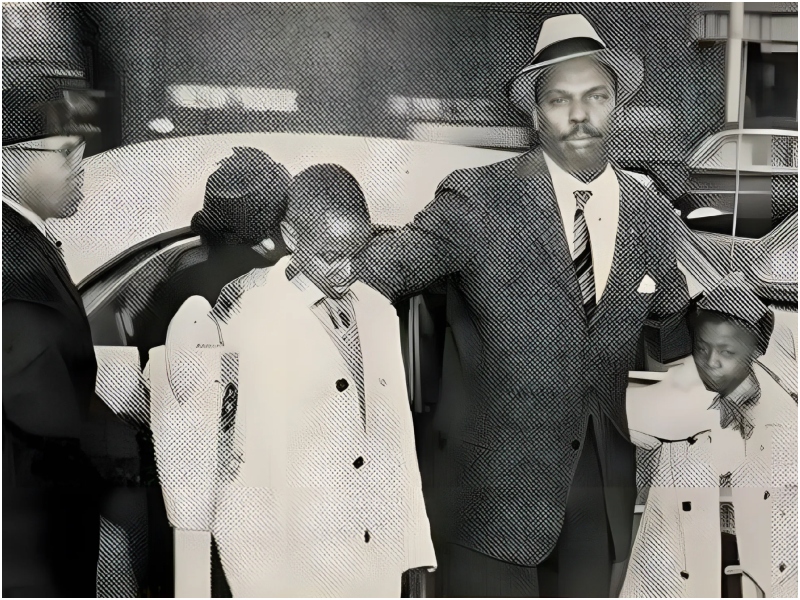In 1958, the innocence of childhood was shattered for two young African-American boys in Monroe, North Carolina, when they were accused of a harmless act: kissing a white girl.
James Hanover Thompson, aged 9, and his friend David Simpson, aged 7, found themselves at the center of what would later be known as “The Kissing Case.”
The incident unfolded innocently as the boys were playing with friends in a white neighborhood. A playful suggestion led to a peck on the cheek from a little white girl, an act taken completely out of context by her parents.
Soon after, the police arrived, accusing James and David of a crime they couldn’t comprehend.
“They said that we had raped a little white girl,” recalls James Hanover Thompson, now reflecting on the traumatic events of his childhood.
The boys were charged with molestation and subjected to violence at the hands of the police, beaten mercilessly before being thrown into jail, where they endured six days of terror.
“They uh… took us down in the bottom of the police station to a cell. And they had us handcuffed — they started beating us,” James says. “They was beating us to our body, you know? They didn’t beat us to the face, where nobody could see it; they just punched us all in the stomach, and back and legs. We was hollering and screaming. We thought they was gonna kill us.”
And soon after they were released from torture, they were sent to reform school, with the possibility that they might be released before they turned 21.
News of the injustice spread rapidly, drawing attention from civil rights activists and even garnering international headlines.
The NAACP and Eleanor Roosevelt intervened, urging the governor to show leniency. Eventually, after spending three months in detention, James and David were pardoned and released.
However, the scars of the ordeal remained deeply etched in their lives. James’ sister, Brenda Lee Graham, vividly remembers the fear and anguish their family endured during those harrowing days.
“Mom was a nervous wreck,” she recalls. “I remember that at night, you could see them burning crosses… And my mom and them, they would go out in the morning, and sweep bullets off our front porch.”
For James, the trauma of “The Kissing Case” cast a long shadow over his life. Despite being pardoned, he never received an apology for the injustice inflicted upon him and his friend. “I still feel the hurt and the pain from it,” he laments. “It just destroyed our life.”
The repercussions of the wrongful accusation reverberated through the years, with James spending much of his adulthood in and out of prison. The promising futures they once envisioned were shattered by the injustice they faced as children.
“My brother and his friend had to suffer on account of that. And I mean, they suffered. From one kiss,” reflects Brenda, highlighting the profound impact of prejudice and discrimination on innocent lives.
“The Kissing Case” is reminder of the enduring legacy of racial injustice in America and the urgent need for justice and reconciliation.

